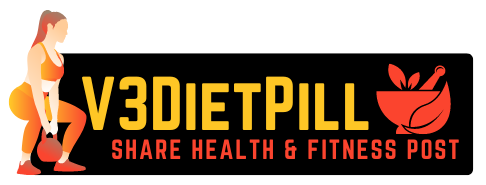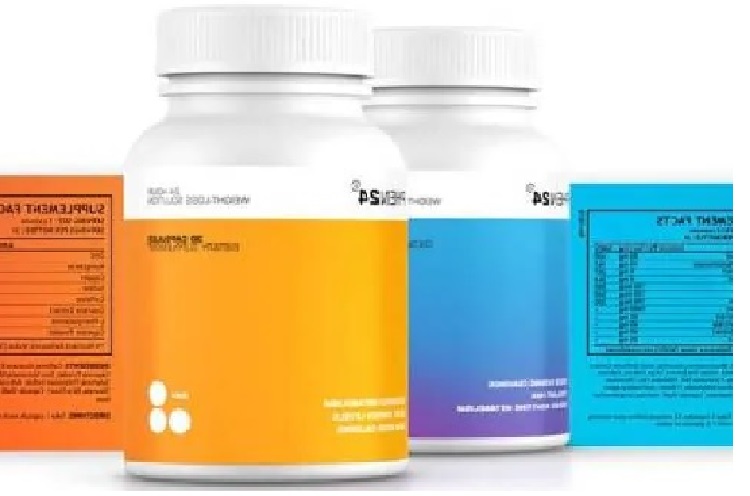In today’s fast-paced world, maintaining optimal nutrition can be challenging, especially with busy schedules and limited access to fresh, nutrient-dense foods. This is where diet supplements come into play. They offer an additional boost of essential nutrients that can help bridge any nutritional gaps and support your overall health and well-being. In this comprehensive guide, we will explore the different types of diet supplements, their benefits, factors to consider before choosing one, label claims and regulations, popular supplements for various health concerns, combining them with a balanced diet, potential side effects, and safety tips for buying and using them.
What are Diet Supplements?
Diet supplements, also known as dietary supplements, are products that contain vitamins, minerals, herbs, enzymes, or other dietary ingredients. They come in various forms such as capsules, tablets, powders, liquids, and gummies, and are intended to supplement an individual’s diet to fulfill specific nutritional needs. While they should not replace a balanced diet, diet supplements can enhance nutrient intake when consumed alongside healthy food choices.
Different Types of Diet Supplements
Vitamins and Minerals
Vitamins and minerals are essential for the proper functioning of the body. Diet supplements in this category provide concentrated forms of these nutrients and help prevent any deficiencies that may arise due to inadequate dietary intake.
Protein Supplements
Protein plays a crucial role in building and repairing tissues, supporting immune function, and maintaining muscle mass. Protein supplements are popular among athletes, fitness enthusiasts, and individuals with increased protein requirements.
Probiotics
Gut health is vital for overall well-being, and probiotics are beneficial bacteria that help maintain a healthy balance in the gut microbiome. Probiotic supplements can support digestion, boost the immune system, and promote a favorable gut environment.
Fiber Supplements
Fiber is essential for digestive health and regular bowel movements. However, many people struggle to meet their daily fiber requirements. Fiber supplements can help increase fiber intake, regulate digestion, and promote feelings of fullness.
Omega-3 Fatty Acids
Omega-3 fatty acids are essential fats that offer numerous health benefits, including reducing inflammation, supporting heart health, and improving brain function. Omega-3 supplements are derived from sources like fish oil or algae.
Herbal Supplements
Herbal supplements utilize plant extracts to promote health and wellness. They may support various functions in the body, such as boosting immunity, reducing stress, improving sleep quality, or aiding in weight management.
Benefits of Using Diet Supplements
Meeting Nutritional Needs
Diet supplements can help bridge nutritional gaps and ensure that individuals meet their recommended daily intake of essential vitamins, minerals, and other nutrients.
Enhancing Physical Performance
Certain diet supplements, such as protein powders and energy boosters, can enhance physical performance by providing an extra source of fuel and supporting muscle recovery.
Supporting Weight Loss Goals
Some diet supplements, like fat burners and appetite suppressants, claim to aid in weight loss efforts by increasing metabolism or reducing cravings. However, it is crucial to use them as part of a comprehensive weight loss plan.
Promoting Overall Health and Well-being
Many diet supplements offer specific health benefits, such as improving heart health, boosting immune function, supporting joint health, or promoting mental clarity. These supplements can complement a healthy lifestyle.
Factors to Consider Before Choosing a Diet Supplement
Quality and Safety
When choosing a diet supplement, look for reputable brands that follow stringent quality control measures. Third-party testing and seals of approval can further ensure the safety and efficacy of the product.
Individual Needs and Goals
Consider your specific nutritional needs and health goals before selecting a diet supplement. Consult a healthcare professional to ascertain which supplements are suitable for you based on your age, gender, lifestyle, and medical history.
Interaction with Medications
Certain diet supplements can interact with medications, potentially causing adverse effects or reducing their efficacy. It is crucial to inform your healthcare provider about any supplements you are taking to avoid any potential interactions.
Allergies and Sensitivities
Some individuals may have allergies or sensitivities to certain ingredients commonly found in diet supplements. Always read labels carefully and avoid supplements containing allergens you may react to.
Understanding Label Claims and Regulations
FDA Approval
Dietary supplements are not required to obtain FDA approval before hitting the market. However, reputable brands voluntarily undergo third-party testing to ensure their products meet safety and quality standards.
Good Manufacturing Practices (GMP)
Look for diet supplements manufactured in facilities that follow Good Manufacturing Practices. These practices ensure strict quality control, sanitation, and proper labeling.
Labeling Requirements
Pay attention to the supplement facts panel, which lists the ingredients and their amounts. Look for supplements that provide transparent information on the sourcing, potency, and purity of their ingredients.
Popular Diet Supplements for Different Health Concerns
Joint Health
Supplements like glucosamine and chondroitin are often used to support joint health, reduce inflammation, and alleviate symptoms associated with osteoarthritis.
Digestive Health
Probiotic supplements containing strains like Lactobacillus and Bifidobacterium can help restore and maintain a healthy balance in the gut, supporting digestion and alleviating digestive issues.
Heart Health
Omega-3 fatty acid supplements, particularly those rich in EPA and DHA, have been shown to support heart health by reducing triglyceride levels, improving blood vessel function, and lowering blood pressure.
Immune System Support
Vitamins C, D, and zinc are widely recognized for their immune-boosting properties. Supplements containing these nutrients can strengthen the immune system and help prevent illness.
Mental Health and Cognitive Function
Certain supplements, such as omega-3 fatty acids, B vitamins, and herbs like ashwagandha, have shown promise in supporting mental health, reducing stress, and improving cognitive function.
Combining Diet Supplements with a Balanced Diet
Diet supplements should be used to complement a healthy, balanced diet rather than replace it. Aim to obtain most of your nutrients from whole foods and use supplements to fill any gaps in your nutritional intake.
Potential Side Effects and Risks Associated with Diet Supplements
While diet supplements are generally safe when used correctly, they can still carry risks. Common side effects may include digestive issues, allergic reactions, or interactions with medications. It is crucial to follow recommended dosages and consult a healthcare professional when necessary.
Tips for Buying and Using Diet Supplements Safely
- Purchase supplements from reputable brands and retailers.
- Read and understand ingredient lists and supplement facts panels before making a purchase.
- Consider consulting with a healthcare professional to ensure the supplements align with your specific needs and goals.
- Start with lower doses and gradually increase as directed.
- Store supplements properly and discard expired or damaged products.
Diet supplements can play a significant role in supporting optimal nutrition, filling nutritional gaps, and boosting overall health and well-being. However, it is essential to make informed choices, considering individual needs, quality, safety, and potential interactions with medications. By combining diet supplements with a well-balanced diet and following proper usage guidelines, you can enhance your nutritional status and take steps toward improved health.
Frequently Asked Questions (FAQs)
Are diet supplements really necessary if I eat a healthy diet?
While a healthy diet should provide most of the nutrients your body needs, diet supplements can help fill any nutritional gaps and support specific health concerns.
Can diet supplements replace prescription medications?
No, diet supplements are not meant to replace prescription medications. They should only be used as a complementary approach and under the guidance of a healthcare professional.
Are all diet supplements safe?
Not all diet supplements are regulated by the FDA, so it is essential to choose reputable brands that comply with stringent quality control measures. Consult with a healthcare professional to ensure safety.
Can diet supplements help me lose weight without exercise and a healthy diet?
Diet supplements alone cannot guarantee weight loss. They should be used as part of a comprehensive weight loss plan, which includes exercise and a balanced diet.
Can I take multiple diet supplements at the same time?
Taking multiple diet supplements simultaneously can increase the risk of interactions and adverse effects. It is best to consult with a healthcare professional before combining supplements.




